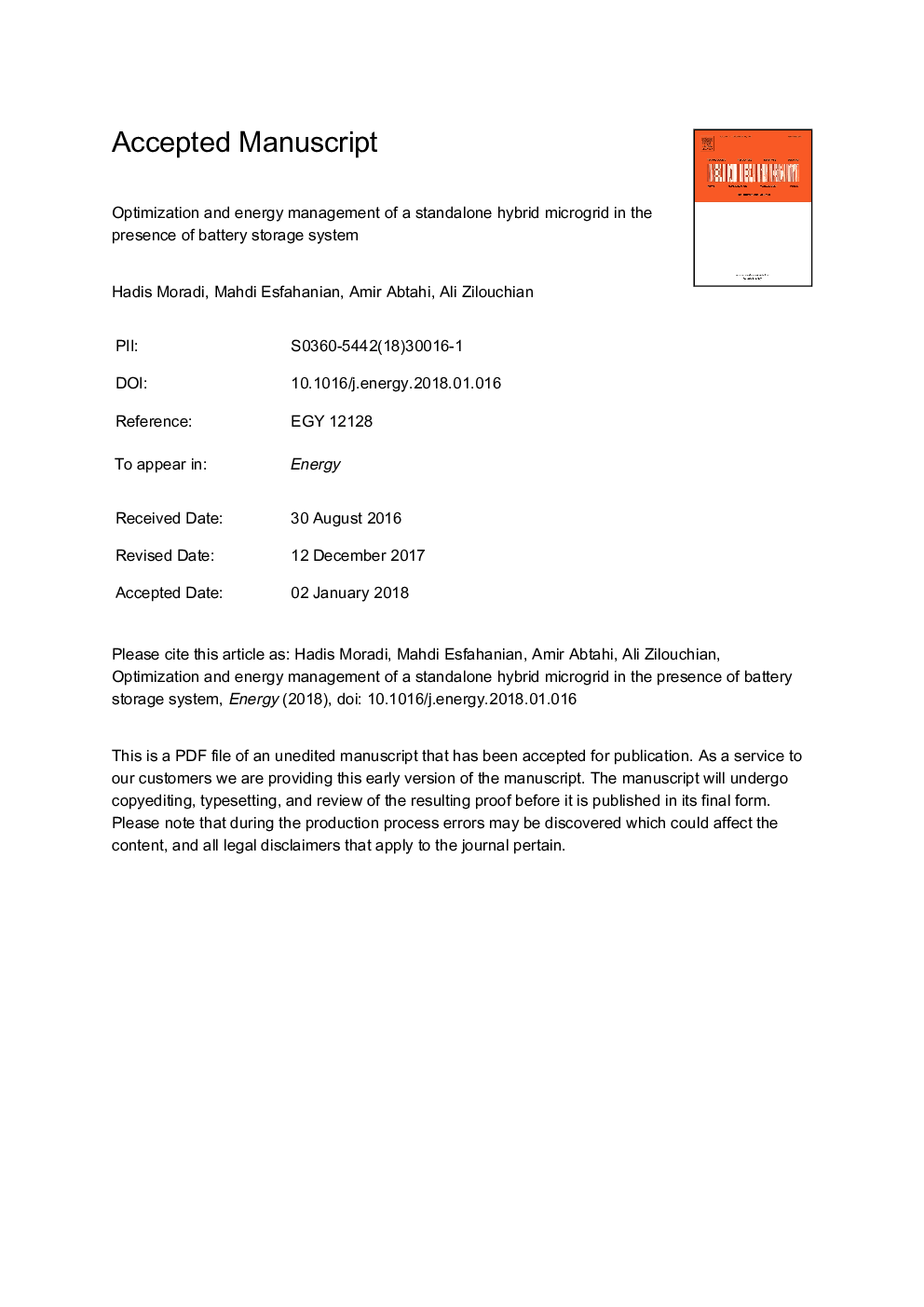| Article ID | Journal | Published Year | Pages | File Type |
|---|---|---|---|---|
| 8072109 | Energy | 2018 | 33 Pages |
Abstract
In this study, an optimal energy scheduling of a standalone microgrid under system uncertainties is investigated and several operational strategies are tested to evaluate the system performance. The main objective of the proposed optimization energy management system is to improve energy utilization efficiency, decrease system fuel cost and gas emissions reduction by planning generations of energy resources hourly for the next day. The system is modeled as a constrained single-objective optimization problem in order to minimize the operation and generated emission costs. Employing an advanced dynamic programming method, the optimization problem is solved. In order to achieve optimal utilization of renewable resources in a microgrid environment and system cost-effective operations, the effectiveness of a battery storage unit has to be examined. Two different operational policies are investigated to examine the system behavior, where the energy production of a microgrid is supplied by generation units with and without access to a battery storage system. The obtained results show a considerable reduction in system total cost and produced emissions when the MG has access to battery storage system in the proposed second policy. Simulation results demonstrate the feasibility and effectiveness of the proposed technique in microgrid energy planning and implementation.
Keywords
Related Topics
Physical Sciences and Engineering
Energy
Energy (General)
Authors
Hadis Moradi, Mahdi Esfahanian, Amir Abtahi, Ali Zilouchian,
